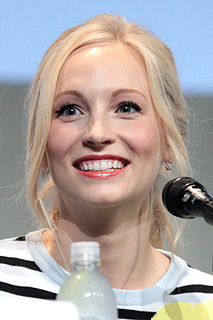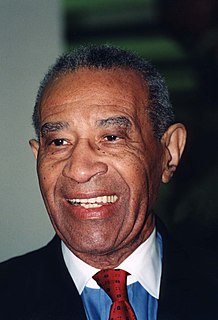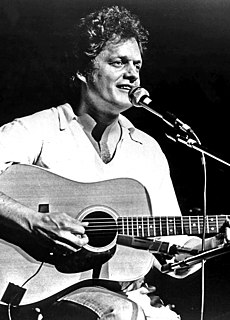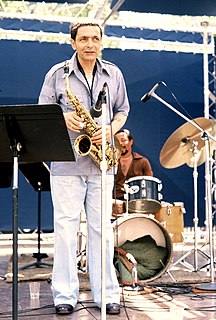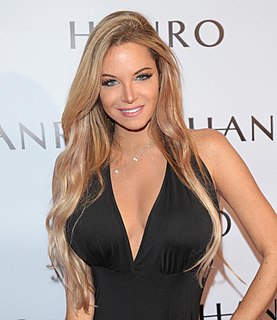Top 508 Jessica Parker Quotes & Sayings - Page 9
Explore popular Jessica Parker quotes.
Last updated on April 16, 2025.
Being a nerd, which is to say going too far and caring too much about a subject, is the best way to make friends I know. For me, the spark that turns an acquaintance into a friend has usually been kindled by some shared enthusiasm . . . At fifteen, I couldn't say two words about the weather or how I was doing, but I could come up with a paragraph or two about the album Charlie Parker with Strings. In high school, I made the first real friends I ever had because one of them came up to me at lunch and started talking about the Cure.
I thought I'd be edgy and dye my hair red. And I dyed my hair, like, Jessica Rabbit red. It kind of allowed me to have this whole new confidence and this whole new swagger and this whole new sense of self. It kind of brought out the inner rock star in me. I had never dyed my hair like that, and no one forgot me after that.
How sweet the moonlight sleeps upon this bank! Here will we sit, and let the sounds of music Creep in our ears; soft stillness and the night Become the touches of sweet harmony. Sit, Jessica: look, how the floor of heaven Is thick inlaid with patines of bright gold; There's not the smallest orb which thou behold'st But in his motion like an angel sings, Still quiring to the young-eyed cherubins. Such harmony is in immortal souls; But whilst this muddy vesture of decay Doth grossly close it in, we cannot hear it.
By the latter part of high school, by the middle of junior year in high school, Jay Rodriguez played me some Irakere records that that Paquito [D'Rivera] was on. And he also played me and our friend, Curtis Haywood, some Phil Woods records. And when I heard Phil, I just about lost my mind. I was playing the Charlie Parker Omnibook as part of my lessons. This was the '80s. There was no YouTube and all that. And we had three or four jazz records at that point.
And what of my extended family-birds, beasts, and reptiles? They too have drowned. Every single thing I value in life has been destroyed. And I am allowed no explanation? I am to suffer hell without any account from heaven? In that case, what is the purpose of reason, Richard Parker? Is it no more than to shine at practicalities-the getting of food, clothing and shelter? Why can't reason give greater answers? Why can we throw a question further than we can pull in an answer? Why such a vast net if there's so little fish to catch? (pg. 98)
...Mr. Wodehouse is a prose stylist of such startling talent that Frankie nearly skipped around with glee when she first read some of his phrases. Until her discovery of Something Fresh on the top shelf of Ruth's bookshelf one bored summer morning, Frankie's leisure reading had consister primarily of paperback mysteries she found on the spinning racks at the public library down the block from her house, and the short stories of Dorothy Parker. Wodehouse's jubilant wordplay bore itself into her synapses like a worm into a fresh ear of corn.
It also helps that what Dan Slott is doing with Peter Parker in the comics has elevated him to something else, so that Miles Morales at the moment is the more traditional Spider-Man figure in the universe: the high school student trying to balance high school and superheroics, and he can't catch a break. That was Peter's role, but it's not his role anymore, and it's Miles' role. That was given to me, and it's pretty cool.
Food historian Jessica B. Harris says African American cuisine is simply what black people ate. When I think about what my family ate, we ate what people think of as soul food on special occasions, on holidays, but our typical diet was leafy greens and nutrients and tubers - food that was as fresh as being harvested right before our meal. Whatever was in season, that's what we were eating. It was being harvested right from our backyard.
The other thing that I got back then - the Parker novels have never had much of anything to do with race. There have been a few black characters here and there, but the first batch of books back then, I got a lot of letters from urban black guys in their 20s, 30s, 40s. What were they seeing that they were reacting to? And I think I finally figured it out - at that time, they were guys who felt very excluded from society, that they had been rejected by the greater American world.
I always felt that I was born in the wrong era. I wanted to be friends with John Garfield, for instance. He was one of the only actors that refused to testify in front of the House Un-American Activities Committee back when the Hollywood Ten blacklist was happening in the McCarthy period. I wish I could've been friends with Charlie Parker and played with him. That's my period. I feel real close to the '40s - and actually I was born in '37, so I was a kid singing on the radio in the '40s. But I always dreamed of going to big cities.
I used to take musical instruments home from elementary school. There were some music teachers there - we all learned instruments. A lot of us got started in public schools. Charlie Parker and Bud Powell, for example. But now there are no more music teachers in public elementary schools. It's like (Senator) Moynihan said, 'benign neglect.' Just let it rot and fester.
He was Jimi Hendrix! He didn't sound like anybody else but himself. He was like Charlie Parker in his way of playing, he played well, he was a person that made waves. When you heard Jimi Hendrix you knew it was Jimi Hendrix, he introduced himself in his instrument... You know, many radio stations play records and a lot of the times they don't call out the names who you just listened to, but when they play Jimi Hendrix, you don't have to tell me, [you know] it's Jimi Hendrix.
For throughout history, you can read the stories of women who - against all the odds - got being a woman right, but ended up being compromised, unhappy, hobbled or ruined, because all around them, society was still wrong. Show a girl a pioneering hero - Sylvia Plath, Dorothy Parker, Frida Kahlo, Cleopatra, Boudicca, Joan of Arc - and you also, more often than not, show a girl a woman who was eventually crushed.
Admittedly, I do have several bones... whole war fields full of bones, in fact... to pick with organised religion of whatever stripe. This should be seen as a critique of purely temporal agencies who have, to my mind, erected more obstacles between whatever notion of spirituality and Godhead one subscribes to than they have opened doors. To me, the difference between Godhead and the Church is the difference between Elvis and Colonel Parker... although that conjures images of God dying on the toilet, which is not what I meant at all.
When I started this song I was still thirty-three The age that Mozart died and sweet Jesus was set free Keats and Shelley too soon finished, Charley Parker would be And I fantasized some tragedy'd be soon curtailing me Well just today I had my birthday I made it thirty-four Mere mortal, not immortal, not star-crossed anymore I've got this problem with my aging I no longer can ignore A tame and toothless tabby can't produce a lion's roar.
[Trey Parker and Matt Stone]called me one Saturday morning and said, "Can you do an impression of Conan O'Brien?" And I said, "I don't know." Because that was really... He hadn't been on the air that long, and to be honest, I hadn't watched much of him at that point. So I went to Santa Monica to their studio and said, "Well, what does he sound like?" They said, "Well, just try it one time. Read the copy." And I read the copy one time, and they went, "Okay, that's fine. Thanks a lot, that'll do. That's perfect."
Percy France told me, similarly, he and Bird used to hang out. They were good buddies. And he said, "Man, we'd just walk through town, sometimes with our horns. And we'd walk by past an Irish bar. And you'd stand outside and check out the music. And Bird would go in and sit in with these traditional Irish musicians. Then we'd past a Greek restaurant and we'd hear that. And Charles "Bird" Parker would go sit in with those guys. He was just listening to everything, reacting to everything.
I thought Id be edgy and dye my hair red. And I dyed my hair, like, Jessica Rabbit red. It kind of allowed me to have this whole new confidence and this whole new swagger and this whole new sense of self. It kind of brought out the inner rock star in me. I had never dyed my hair like that, and no one forgot me after that.
[Charlie Parker] was kind of a sponge and intrigued by it all.That's similar to what Phil [Woods] told me about Bird, too. Like he was into cooking. He was just into a lot of things. Yeah, it's about dealing with bebop and jazz and Trane [John Coltrain] and post-Trane and knowing the history. But you've got to live. You have to experience things. Know something in this world. So it was a very deep education about what it means to try and be an artist.
The way so many musicians slavishly imitated Coltrane, that's the way it was with Charlie Parker - only even more so, if that can be imagined. Everyone that I knew changed totally. But they took the worst things of his playing-that harsh sound; it just didn't come off the way they did it. The way he did it was great, Their way wasn't good at all. I just would listen to 'em, say: 'That's a Bird imitator', and that would be it; I would never care to listen to them again.
I laughed. It was just like Owen to make excuses for someone else’s shortcomings. Even fictional characters. Owen found my tendency to speak my mind “refreshingly honest,” and hailed Marc’s temper as “a deep protective instinct.” He said Ethan “thoroughly enjoyed life,” and that Parker “really knew how to have a good time.” According to Owen, we were all doing just fine, and all was right with the world.
In those days before hearing Charlie Parker and Dizzy, and before learning of the so-called bebop era--by the way, I have some thoughts about that word, "bebop"--my first jazz hero ever, jazz improvisor hero, was Lester Young. I was a big "Lester Young-oholic," and all of my buddies were Lester Young-oholics. We'd get together and dissect, analyze, discuss, and listen to Lester Young's solos for hours and hours and hours. He was our god.
Jessica, I know I've been...difficult," he said. "All the same—" "Difficult?" She looked up, her grey eyes wide, "You have been impossible. I begin to think you are not right in the upper storey. I knew you wanted me. The only thing I've never doubted was that. But getting you into bed— you, the greatest whoremonger in Christendom— gad, it was worse than the time I had to drag Bertie to the tooth-drawer. And if you think I mean to be doing that the rest of our days, you had better think again. The next time, my lord, you will do the seducing— or there won't be any, I vow.
Jessica Biel is a really interesting case. She actually called us after the table read and said, "You guys should go meaner." She pitched us, and said, "Look, I know there are a lot of things to make fun of me about. I don't want people to think you're pulling punches. Please, dive in." We asked, "Could we tell a joke about your friend and mentor Stephen Collins?" And she said, "Well maybe not so much in that area. As long as the jokes were about me, I'm game for everything."
Black music has always known, and not been afraid to acknowledge just how high the stakes of Black thought are. To summarize the final soliloquy of Clay, the protagonist in LeRoi Jones’ (aka Amiri Baraka’s) play Dutchman. You’d better be glad Charlie Parker could play him some horn and Bessie Smith could sing, because if they didn’t make music they might murder you. One would be hard pressed to find another group of people on this planet whose music is a surrogate for murder. One would be hard pressed to another group of people on this planet whose life is a proxy for death.
Eventually as a teenager, I was pulled up on stage by James Brown's saxophone player, Maceo Parker, during one of his concerts and scatted on his stage for 20 minutes. After I was done, Maceo's bass player got down on one knee as if he were proposing, took a string off of his bass guitar and coiled it up around my ring finger. He hushed the crowd and said into the microphone, "Wendy, from this day forward you are married to music. You have a gift from God. You must devote your life to using this gift or else you will deprive the world of something so special." I got the chills.

